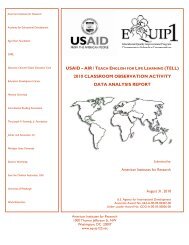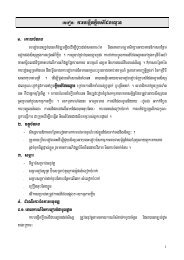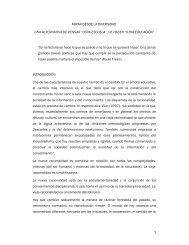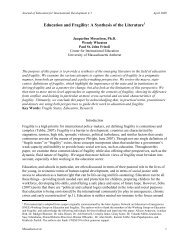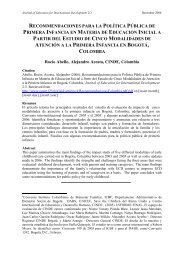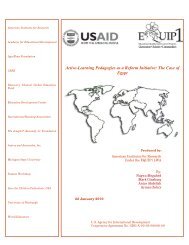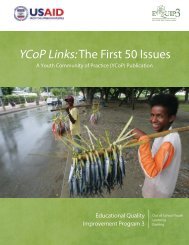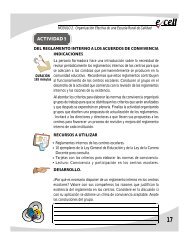The Power of Persistence: Education System ... - EQUIP123.net
The Power of Persistence: Education System ... - EQUIP123.net
The Power of Persistence: Education System ... - EQUIP123.net
Create successful ePaper yourself
Turn your PDF publications into a flip-book with our unique Google optimized e-Paper software.
was beyond the mandate <strong>of</strong> the Minister <strong>of</strong> <strong>Education</strong>, so the policy dialogue<br />
process engaged the Ministry <strong>of</strong> Finance, legislators, private sector, and political<br />
leaders to explore alternative strategies. This process was a good demonstration <strong>of</strong><br />
the maturity and effectiveness <strong>of</strong> the structures and processes in El Salvador.<br />
Scaling up<br />
<strong>The</strong> other relevant development concept is scaling up. <strong>The</strong> experience in these<br />
countries indicates that this is one <strong>of</strong> the greatest challenges, and that it requires<br />
significant patience and persistence. Scaling up requires that all <strong>of</strong> the other<br />
elements have been met—that the interventions and policies have proven to<br />
be effective; that the changes have been introduced in sufficient depth as to<br />
have genuine ownership and leadership at all levels; and that the reforms are<br />
sustainable and survivable. When all <strong>of</strong> these conditions are in place, scaling is<br />
possible, but still not easy.<br />
<strong>The</strong> key factors for success in the countries that have made significant progress<br />
in adopting processes and principles on a national scale have been continuity,<br />
adaptation, and time. In none <strong>of</strong> the cases are specific reforms operating at<br />
acceptable quality standards on a national scale. Many <strong>of</strong> the key reforms were<br />
not intended for scaling up. Countries such as El Salvador determined that<br />
one size does not fit all, but adapted core principles about community school<br />
management for different purposes. In Namibia, several donor-funded project<br />
innovations have been folded into national-level improvement initiatives,<br />
retaining the key elements <strong>of</strong> the original program interventions. In Nicaragua,<br />
an explicit policy decision was made to scale-up the Active Schools approach to<br />
all schools. <strong>The</strong> Zambia community schools expansion was largely an organic<br />
process rather than a policy decision. In Egypt, strategic planning was initiated<br />
on a pilot project basis in one, and then seven, governorates before becoming a<br />
national program. <strong>The</strong> National Strategic Plan not only was coordinated bidirectionally<br />
with the seven governorates’ planning processes, but also facilitated<br />
strategic planning initiatives in all other governorates. In this case, a process and<br />
planning mentality was scaled-up rather than a specific intervention.<br />
<strong>The</strong> Zambian experience <strong>of</strong>fers an example <strong>of</strong> gradual strengthening and<br />
increasing functionality <strong>of</strong> a system within the constraining context <strong>of</strong> highlycentralized<br />
human resource and management policies and limited resources.<br />
Throughout the reform period, donor activities have extended the reach <strong>of</strong><br />
the system, but at times did so in ways that did not strengthen, and sometimes<br />
undermined, system capacity development. Implementation <strong>of</strong> too many<br />
activities in the early 2000s diluted MOE focus; the system simply did not have<br />
the resources or capacity to scale-up all promising pilots. However, processes<br />
154<br />
SECTION 3: SUMMARY fINdINGS ANd CONClUSIONS



